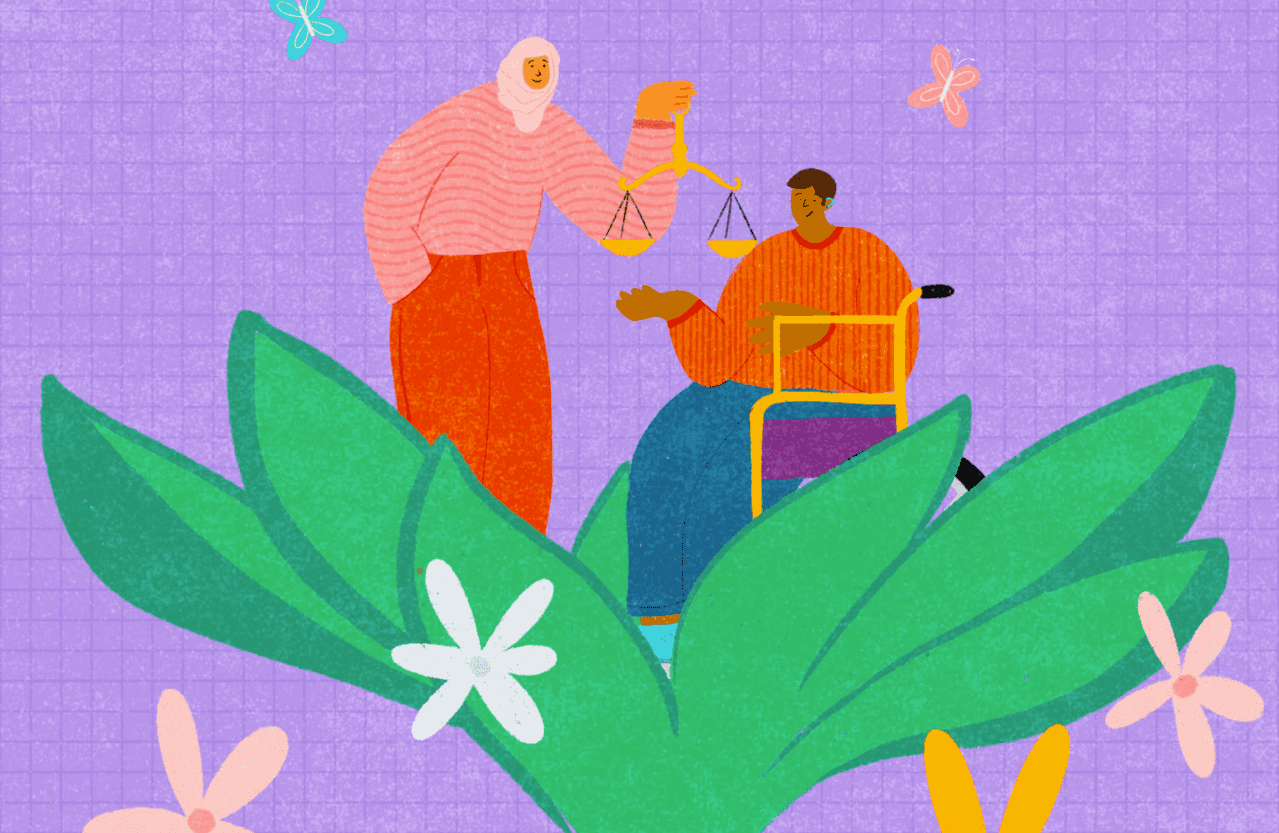“Die Klimakrise betrifft marginalisierte Gruppen überproportional stark, wobei ihre kolonialen Ursprünge oft vernachlässigt werden. Unser Format zielt darauf ab, Stimmen von BIPoCs in Europa eine Bühne zu geben.”Nani Jansen Reventlow, Gründerin von Systemic Justice
"Reframing climate justice": BIPoC und Klimagerechtigkeit im Fokus
Die Auswirkungen der Klimakrise sind bereits jetzt in Europa spürbar und treffen insbesondere marginalisierte Gruppen wie Schwarze, indigene und People of Color (BIPoC). Die fünfteilige Vortragsreihe von Systemic Justice wirft Licht auf eben diese Problemlage und zeigt dabei BIPoC-Perspektiven sowie einschlägige Maßnahmen gegen rassistische, soziale und wirtschaftliche Ungerechtigkeit.
7. Mai 2024

© Pexels / George Milton
Mehr zur Organisation
Systemic Justice
Die Ursachen verstehen.
In Bezug auf die Klimakrise lautet eine der vorherrschenden Erzählungen der Klimabewegung, dass sie "zukünftige Generationen" betreffen wird. Dennoch sind gerade marginalisierte Gruppen schon jetzt in hohem Maße betroffen.
Die Vortragsreihe "Reframing climate justice" bietet daher Raum für alternative Erzählungen aus der Perspektive von Schwarzen, Indigenen und People of Color in Europa, die aktiv gegen rassistische, soziale und wirtschaftliche Ungerechtigkeiten kämpfen. Über fünf Veranstaltungen hinweg werden hier die Ursachen des Klimawandels untersucht. Dabei werden die spezifischen Auswirkungen auf BIPoC-Gemeinschaften herausgearbeitet und gemeinschaftliche Maßnahmen diskutiert, um dieser akuten Lage entgegenzuwirken. Das übergeordnete Ziel ist es, sicherzustellen, dass bei der Suche nach echter, intersektionaler Klimagerechtigkeit niemand übersehen wird.
Worum es geht.
Die Serie erforscht die Rolle der BIPoC-Communities in Europa im Kampf gegen den Klimawandel. Darüber hinaus wird der Begriff der Klimagerechtigkeit näher beleuchtet und unter anderem auf dessen Verbindung zu den Schwarzen Befreiungsbewegungen zurückgeführt.
Gleich in Folge eins wird die aktuelle Relevanz dieser geschichtlichen Gegebenheiten im anhaltenden Kampf um Klimagerechtigkeit diskutiert. Währenddessen enthüllt Folge zwei die kolonialen Ursprünge der Krise und zeigt, wie historische Ungerechtigkeiten die Gegenwart fortlaufend prägen. Schließlich untersucht Folge drei Europas räumliche Ungerechtigkeiten und enthüllt, wie Phänomene wie grüner Kolonialismus und Öko-Gentrifizierung soziale und wirtschaftliche Machtverhältnisse aufrechterhalten.
One click for data privacy
Only when you click the button the video be loaded from Youtube. Only your IP address will be transmitted to external Youtube servers. You can find out more about the data protection of this provider on the Youtube website.
Erfahren Sie mehr:
Nani Jansen Reventlow über die Bedeutung von gemeinschaftlichen Klageverfahren
+Dieser Text ist nur auf Englisch verfügbar+
By carefully coordinating action on different fronts, including campaigning and generating public debate, litigation can be an important catalyst in pushing causes forward. But while the courts are powerful agents for change, marginalised communities are often unable to leverage the full potential of litigation on their own terms for their causes and campaigns.
There can be a difficult dynamic and power imbalance between the groups pushing for change and litigators doing the legal work, resulting in lawyers instead of the communities themselves driving the work and setting the objectives when it comes to court cases. Current climate litigation, which does not address the needs of the marginalised groups that are being hit the most by the climate crisis, is an example of this.

The foundations of community-driven litigation
At Systemic Justice, we believe that communities should be leading on the litigation campaigns that concern them, and that they should be able to access justice on their own terms. This is more than strategic litigation as we know it, or even “community-centred” litigation: we are building a model of community-driven litigation. What does that entail?
It begins with the starting point for exploring collaboration: instead of having lawyers identify legal strategies and then reverse engineering a partnership with communities the lawyers assume will want to pursue them, communities’ perspective, lived experience, and solutions drive the work. This goes hand in hand with the fundamental acknowledgement that structural change takes time. For this reason, we enter into long-term partnerships and develop joint strategies that tackle root causes rather than merely addressing the symptoms of systemic injustices.
The process: building on best practices and reimagining the bad ones
When exploring a partnership with a community-based organisation, we jointly discuss and consider the following questions:
1) What is the bigger change the community wants to see?;
2) Can strategic litigation provide a positive contribution to their campaign for change?;
3) If so, what would a litigation strategy look like?
If we make the mutual decision to move forward together, the next step is to jointly design a strategy for a litigation campaign that can complement their cause.
We are in the process of developing our litigation methodology, where we seek to draw on existing good practices in community and movement lawyering, and devise alternatives to the problematic patterns that exist in traditional lawyering models.
One set of good practices we’re learning from are the design justice principles. Applied to the context of strategic litigation, we have translated these principles into the following:
- We jointly design strategic litigation processes in a way that sustains, heals, and empowers communities, while seeking liberation from exploitative and oppressive systems.
- We centre those who are directly impacted by the outcomes of the strategic litigation, which by necessity means being led by those most impacted by the injustice being challenged in the litigation.
- We prioritise the impact litigation can have on communities over the intentions of Systemic Justice. This means that cases will not be designed based on what Systemic Justice would like or want to litigate on, but on the basis of communities’ objectives for the process and what they believe can bring about change.
- We co-design a process that is accountable, accessible, and collaborative throughout.
- We are facilitators in the process rather than experts. Expertise comes from lived experience, and everyone has unique and brilliant contributions to bring to a strategic litigation process.
- We work closely with communities in providing all the information, support, and guidance needed to develop a legal strategy on their own terms, and do the legal leg work to make that litigation strategy a reality.
- We share knowledge and tools with the communities we work with.
- We jointly design strategic litigation processes that are aimed at sustainable, community-led, and community-owned outcomes. This means that the outcomes of litigation feed back into communities’ campaigns for change, that the litigation is part of a longer-term and sustained movement, and that successes are owned collectively by the community rather than an individual lawyer, organisation, or claimant.
- We co-design strategic litigation processes that are aimed at non-exploitative solutions that reconnect us to the earth and to each other.
- We honour and uplift knowledge and practices that already exist at community level, and we build on what is already working for communities.
Beyond these principles, our litigation methodology includes our approach to outreach and trust-building, and our case development approach, which will be further developed and tested.
The text was originally published on the Systemic Justice Website in February 2023.